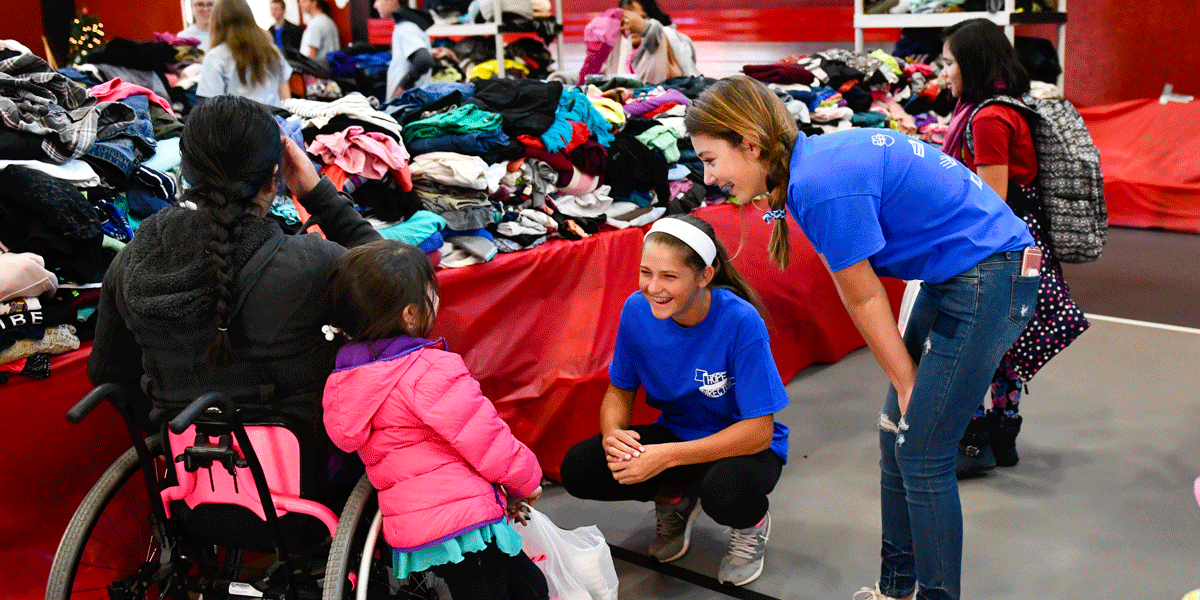Most of us recall fondly our participation in high school extracurriculars. We may even think about our involvement in theater, or the school newspaper, or athletics, or a service-based club as the highlight of our secondary school years. At Colorado Academy, our students often feel much the same way, thanks in part to the enormous range of activities we have available.
The importance of these activities has garnered much positive attention. The National Education Association (NEA), for example, asserts that extracurricular activities “instill great values like teamwork, responsibility, and a sense of community” while also “boost[ing] school attendance, academic success, and aspirations for continuing education . . . . Additionally, they are linked to healthier choices like avoiding drug use and maintaining a healthy body weight.” That’s a powerful force for good in a student’s life.
At Colorado Academy, we are fortunate in that arts and athletics are actually co-curricular activities at our school; that is, they are required for all students and not generally defined in our school as “extras,” as they are in many schools across the country. While many of our students participate in activities that we would define as artistic or athletic, both in and out of school, my discussion here will be limited to any activity beyond the academic, artistic, or athletic realm that is not required and is (for the most part) student created and student run.
For our students, those sorts of activities run the gamut from service-based (e.g., Students HOPE, Philanthropy Board, Children’s Hospital Club) to public contest-oriented (e.g., Mock Trial, Model UN, Math League, Knowledge Bowl) to interest-based and fun (Reading Club, Board Games Club, SMILE, Movie Club). All of these clubs fill unique niches in our total school program and provide powerful opportunities for learning beyond the classroom.
Diving deep or playing the field?
I am often asked whether or not a student is “better off” participating deeply in one activity or dabbling in and experiencing multiple activities. The answer really lies in the student’s interest, and should not be dictated by “what colleges want” nor based on perceptions of what other students are doing. I would advise taking whichever approach will lead to growth and a sense of belonging and help the students get the most out of their high school years. For some, that means a thorough and long-standing involvement with one, or maybe two, activities; for others, that could mean “playing the field” in order to expose themselves to a range of possibilities. In the case of the latter, some students really do need to try many things in order to discover what really moves them, and they value the opportunity to branch out into multiple social groups as well.
We do know that diving deep can lead students to unexpected levels of satisfaction, responsibility, and personal growth. They can also be stressful. Student leaders are often surprised at how much work it takes to run a club or lead an activity, especially something that leads to a major event, like HOPE or the Mock Trial regional tournament. This is a truly meaningful life experience for them; yet, it also demands a lot of time and energy, sometimes at the expense of other things. These are truly authentic experiences with unpredictable outcomes. Again, the breadth of offerings at CA means that different students can take different pathways.
One successful example
For the last 14 years, I have had the good fortune of working closely with one particular extracurricular activity. The Curious New Voices program, in partnership with Curious Theatre, provides young playwrights an opportunity to try their hand at playwriting, ultimately leading to a staged reading with professional actors at the Curious Theatre in Denver. This venture started when former CA English teacher Betsey Coleman heard about the educational outreach that the theater company was doing. Betsey and I met with Curious’s Educational Director, Dee Covington, who agreed to form a playwriting club with an initial cohort of ten creative writers. All these years later, Dee and I are still around, and this wonderful extracurricular program has involved over 100 students, many of whom have gone on to pursue theater or creative writing in college.
Curious New Voices, or Playwriting Club as it is more commonly known, comprises many of the best ingredients of a successful extracurricular activity. Students opt in to the experience and get as much out of it as they are willing to give. While trusted adults guide them along the way, the onus is on them to deliver. Many of them enter the program as Ninth or Tenth Graders, then stay with it until Senior year, when they often take on leadership roles. Ultimately, their work during each school year culminates in a “show what you can do” moment, which in this case means student writers see their work performed on stage and hear professional actors speak the words they wrote. That sort of authentic learning underscores the enduring value of extracurricular activities.
